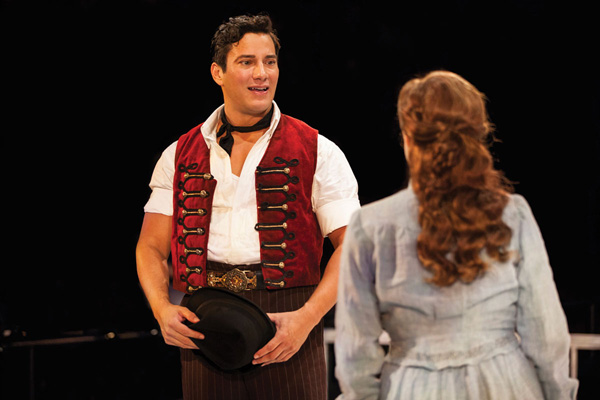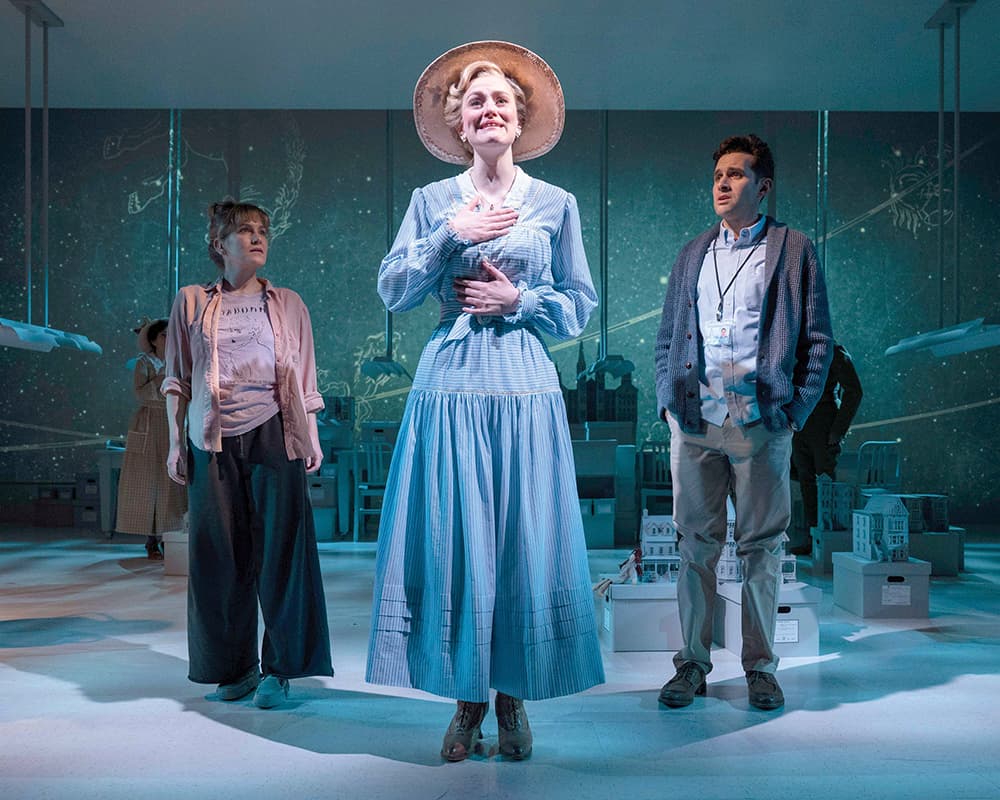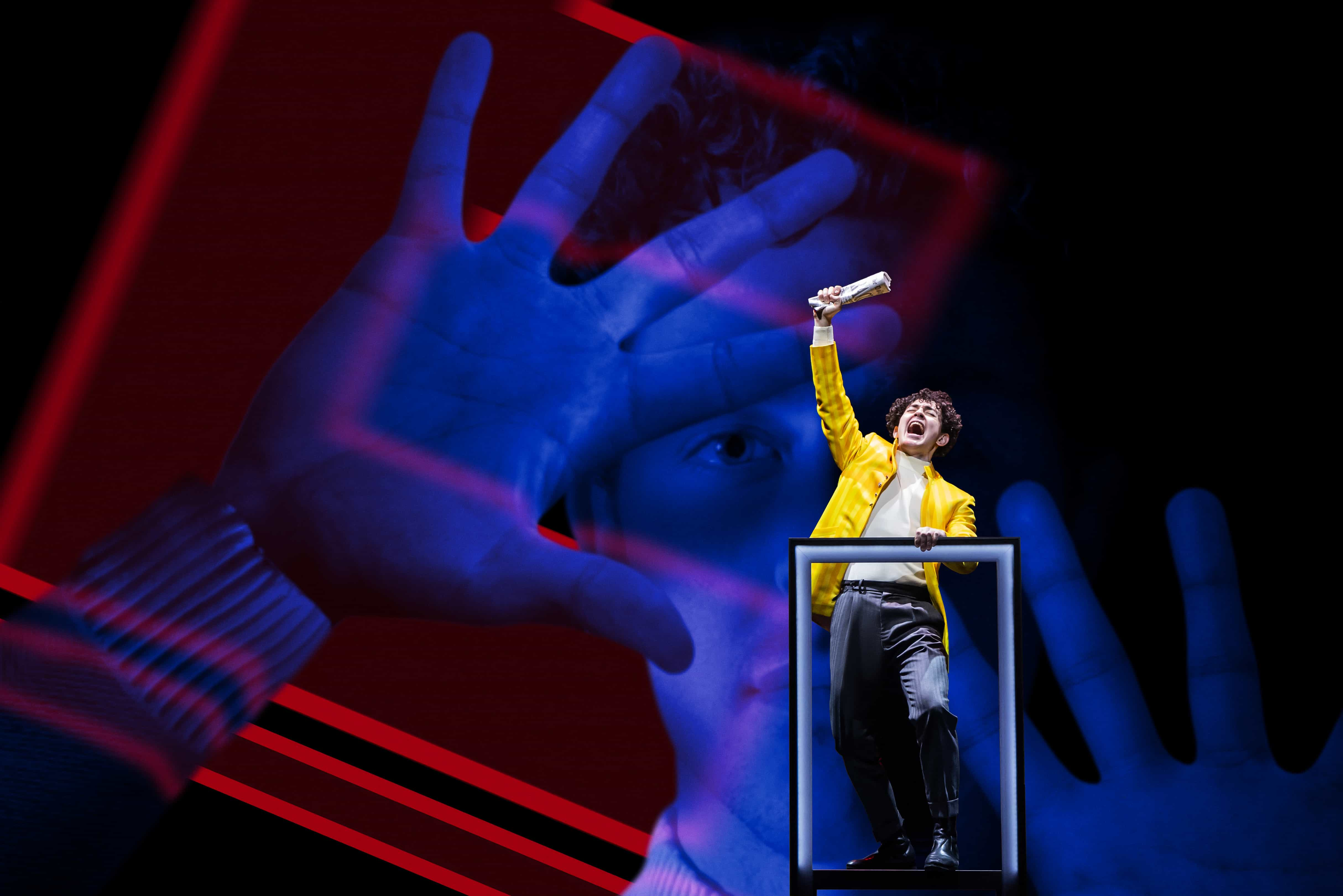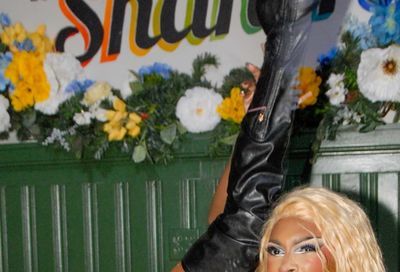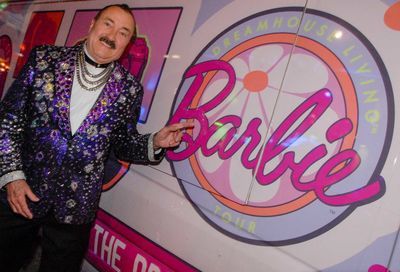Unmerry-Go-Round: Carousel at Arena Stage (review)
Arena Stage pulls out the stops to keep Carousel turning, but a complicated tale occasionally slows it down

Forget Maria. How do you solve a problem like Billy? In Rodgers & Hammerstein’s The Sound of Music, Maria’s problem is that she’s simply unfit to be a nun, a problem immaterial once she finds her true love. If only Billy Bigelow’s problem were as simple. In Carousel, Bigelow proves to be unfit for life in general. We see him failing at work, in his marriage, in his home life and beyond.
In the Arena Stage revival, Nicholas Rodriguez is as winsome as the character could ever hope to be. Hunky and charismatic, Rodriguez belts his heart out, putting his all into the role — you’ll feel for him, even if you don’t quite ever fully understand him. But there are greater complications in the musical than problematic Billy — just as there are greater arguments for seeing Carousel (![]()
![]()
![]()
![]() ) than Rodriguez’s fine performance.
) than Rodriguez’s fine performance.
In the show’s program, Molly Smith refers to Carousel as “the Hamlet of American musicals,” one she’s wanted to direct for years. She’s certainly pulled out all the stops to make it work, in many respects modeling it after her successful revival of Oklahoma almost a decade ago. In addition to Rodriguez, Smith brings back that show’s E. Faye Butler, who is as welcome and scene-stealing a presence as ever as Mrs. Mullin, owner of the amusement park in the small coastal Maine town where Billy works as a barker.
Though we never actually see the show’s namesake ride, it is evoked in Todd Rosenthal’s imaginative set, centered in the in-the-round Fichandler Stage, complete with a rotating platform installed as part of a whitewashed wood floor. The 12-piece orchestra plays above the action in a gazebo ringed in lights.

Parker Esse, Smith’s go-to choreographer since his Helen Hayes Award-winning work with Oklahoma, once again provides his signature buoyant choreography. He regularly evokes a carousel through turns and orbiting gestures, but also showcases an even greater range in his talents through the ballet that comes late in act two. Billy’s daughter Louise poignantly conveys the show’s story through an extended, grand solo. The sequence, anchored by Skye Mattox’s capable performance, greatly enhances the show, giving theatergoers something well beyond the musical norm.
Carousel goes beyond the norm in other ways, particularly in scenes from purgatory and heaven, and in its related themes of forgiveness and redemption. It’s a complicated tale, one reviled as much as revered for that very reason. The complications go beyond the character of Billy to include his relationship with Julie Jordan. Julie loses her job as a millworker because she lingers past curfew at the carousel, and Billy loses his job because he defies Mrs. Mullin’s orders to ban Julie from the ride — Mullin rightfully identifies Julie as a threat to her romantic pursuits of Billy. But what does thoroughly bad boy Billy see in utterly good girl Julie, and vice versa?
It’s never completely clear, especially with Betsy Morgan’s stilted portrayal of Julie, intermittently feisty yet more of a drama-averse shrinking violet. A better match for Billy would be Julie’s best friend Carrie, played by Kate Rockwell as a charming, wannabe adventure-seeker. Unfortunately, Carrie is already engaged to Enoch Snow, who is nearly the opposite of Billy — upstanding and scrupulous. Kurt Boehm succeeds in the delicate balancing act of being both alluring and off-putting, gregarious yet provincial.
Both Billy and Enoch prove themselves to be stereotypical males — domineering to the point of threatening at the slightest hint of insubordination from the women. And that’s where the complications really lie in Carousel, especially when word gets out that Billy has hit Julie. Julie, and later daughter Louise, essentially excuse the behavior by saying the punch didn’t hurt and felt more like a kiss. She also leads the women in the cast in “What’s The Use of Wond’rin,” a beautiful ballad with less-than-beautiful lyrics, instructing women not to question or argue with their man’s interests or motives.

Carousel, dating to 1945, was written in a different era, a time when gender equality was far from the norm. It also wasn’t common to discuss matters as sensitive or private as domestic violence. The townspeople in Carousel are seen as disapproving, and the fact that domestic violence is included as a theme at all, one ensuring post-show discussion of the topic, is an argument in the show’s favor.
A far stronger argument is the superb score. Even hokey lyrics, such as the act two opener “A Real Nice Clambake,” can be overlooked in numbers with music this rapturous and stirring. And Carousel features two of the greatest songs in the musical theater canon — the cleverly seductive “If I Loved You” and the heart-swelling “You’ll Never Walk Alone.” If you give in to its power, the latter’s uplifting sentiment — to keep pushing ahead even when life deals you a setback — just might help you persevere through the problems in our present-day political reality.
Carousel runs to Dec. 24 at Arena Stage, 1101 6th St. SW. Tickets are $84 to $99. Call 202-488-3300 or visit arenastage.org.
Support Metro Weekly’s Journalism
These are challenging times for news organizations. And yet it’s crucial we stay active and provide vital resources and information to both our local readers and the world. So won’t you please take a moment and consider supporting Metro Weekly with a membership? For as little as $5 a month, you can help ensure Metro Weekly magazine and MetroWeekly.com remain free, viable resources as we provide the best, most diverse, culturally-resonant LGBTQ coverage in both the D.C. region and around the world. Memberships come with exclusive perks and discounts, your own personal digital delivery of each week’s magazine (and an archive), access to our Member's Lounge when it launches this fall, and exclusive members-only items like Metro Weekly Membership Mugs and Tote Bags! Check out all our membership levels here and please join us today!




